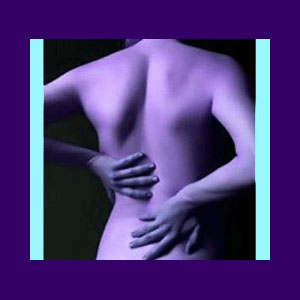
Breast cancer back pain is often an occurrence in patients battling for their lives against this epidemic disease. Breast cancer is one of the most common forms of neoplastic process. While treatments for this disease have improved dramatically and patients have a better chance for recovery than ever before, the condition is still hell to endure.
Women’s back pain is just one of the physical ravages often caused by this particular form of cancer. It is always advised that cancer patients work closely with their doctors and report all symptoms associated with the disease or with any new therapy commenced. This will not only help to provide relief from their suffering, but will also better ensure that treatment is successful and not doing more damage than good.
This essay provides guidance on reducing the severity of back symptoms while treating breast cancer.
Causes of Breast Cancer Back Pain
Breast cancer-related back pain can be caused by the actual disease itself or by many of the treatment options:
Tumors can cause pinched nerves that might cause pain in the back and/or limbs.
Tumors can also restrict blood flow causing ischemic back pain.
Tumors can cause inflammation, creating tender areas in the chest and back.
Infection is a possible cause of pain, especially after a surgical procedure.
Chemotherapy can cause discomfort and other symptoms throughout the body, including in the dorsal anatomy.
Radiation can cause pain and other symptoms in the chest, back and elsewhere.
Breast Cancer and Spinal Cancer
Breast cancer can spread to other areas of the body. This type of cancer is called metastatic and can be life threatening. Metastatic spinal tumors sometimes exist in tandem with original breast tumors. Metastasis is a very serious condition, since the cancers often grow faster than they can be treated. Discovering breast lumps early is the best way of preventing metastasis from occurring.
While breast cancer remains a highly treatable form of the disease, many metastasized cancers are not so responsive. This is why it is so vital to keep a close relationship with your doctor during the entire diagnostic, treatment and recovery processes and maintain this bond for preventative care and screenings even after the disease is in remission.
Breast Cancer Painful Symptoms
There are many back pain symptoms that might be related to a cancerous condition in the breasts:
Pain and neurological effects such as tingling, weakness or numbness in the chest, upper body, arms or hands.
Visual deformity or palpable lump in the breast tissue is a possible harbinger of cancer.
Pain is often elicited from direct physical touch or compression of the area.
Flu-like symptoms, including loss of appetite or weight, fever, nausea, chills, general aches and pains, are commonplace in cancer patients.
Many of these symptoms are common for a variety of back and chest pain conditions. Just because you have one or more does not mean that you have breast cancer. It is always wise to get a medical examination for any new pain syndrome to diagnose or exclude any chance of breast cancer or other neoplastic process.
Recommendations for Breast Cancer Back Pain
If you have unexplained back, chest or breast pain, get evaluated by a doctor immediately. Ruling out cancer as a cause or contributor to your back pain is reason enough to get a check up. Cancer can cause back ache through many processes. It is important to be on-guard for breast cancer, since early detection and treatment are crucial for a better chance at survival, as well as improved post-treatment quality of life.
If you are a diagnosed breast cancer patient with back pain, talk to your doctor about the possible causes. Determining whether the cancer or the treatments are causing your discomfort is often the most difficult part. Once the cause has been determined, your doctor will hopefully be able to find a solution for your pain. If your treatment is causing back pain, talk to your doctor about alternate therapies.
Regardless of the source of your cancer-related suffering, keep a positive mind set and have confidence in your treatment. This is crucial to ensure the success of your therapies and the resolution of your breast cancer symptoms. Remember, the mind plays a very crucial role in recovering from any catastrophic health issue.





